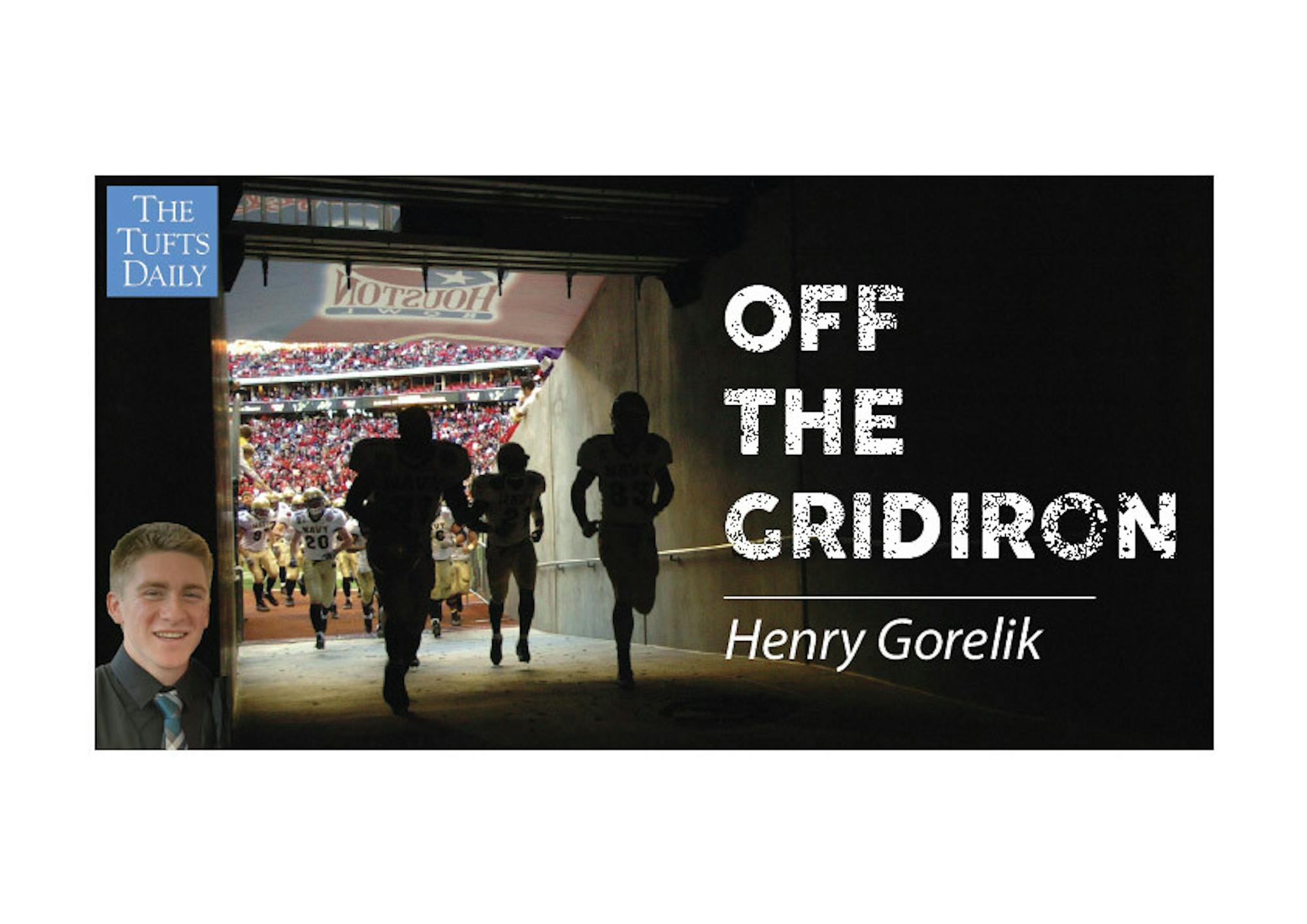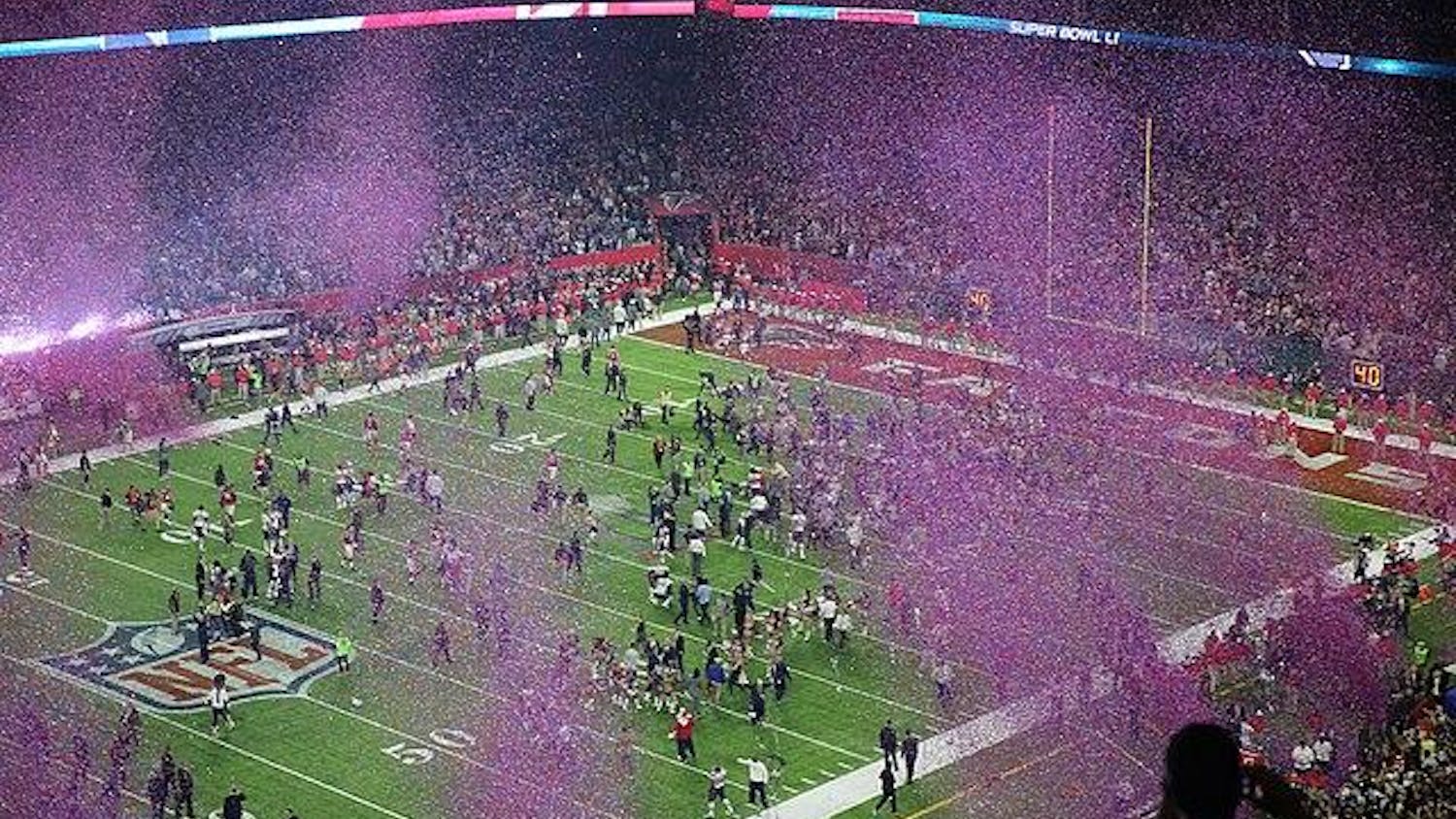NFL Network called it “the throw of the pro day season.” There was one particular throw in Zach Wilson’s pro day that stood out to NFL scouts and Twitter alike. "The throw" had the former Brigham Young quarterback in a sprint right bootleg, rolling toward the left hash and hitting receiver Aleva Hifo in-stride 60 yards downfield, as Wilson was still drifting to his left.
But when former Ohio State quarterback Justin Fields made a nearly identical throw in his pro day several days after Wilson, the NFL media was silent. Fields took the snap, took a step to his right, spun and rolled out to the left hash, and delivered an impressive pass from the 30-yard line that led his receiver into the end zone. Maybe the lack of excitement was because Wilson made "the throw" first or because Fields did not throw across his body like Wilson did. I don’t buy it. I believe the discrepancy between the reactions to these two throws highlights a larger issue in the media coverage of Black quarterbacks.
In the days after Fields’ jaw-dropping throw, ESPN analyst Dan Orlovsky reported that he has heard that Fields is the “last guy in, [and the] first guy out.” Orlovsky also said there were questions about Fields' work ethic and asked, “Where is his desire to be a great quarterback?”
Boston sports radio host Gary Tanguay added that Fields has “established himself as a one-read QB and has concerns between the ears.” In the meantime, there have been no widespread media concerns about white quarterback prospect Mac Jones, despite his DUI during the 2017 season. This difference in coverage blatantly evidences the way the NFL media instinctively doubts the intelligence and intangibles of Black quarterbacks.
The criticism of Fields is eerily reminiscent of the criticism faced by former Heisman Trophy winner and now NFL MVP winner Lamar Jackson throughout his pre-draft process. Former NFL Executive Bill Polian infamously viewed Jackson as a wide receiver in the NFL, advising him, “Don’t be like [Terrelle Pryor] from Ohio State and be 29 when you make the change.” Furthermore, an Atlantic Coast Conference coach said Jackson “can’t make throws and can’t read coverages.” While Fields has not been asked to play another position, the NFL community has raised concerns that Fields, likeJackson, is not smart enough to play quarterback. While all prospects are heavily criticized, it does not feel like a coincidence that the type of criticism directed toward Black quarterbacks scrutinizes their cerebral capacity.
There is a mountain of evidence that should quell any doubts about Fields’ work ethic, commitment to becoming an elite quarterback and football IQ. First of all, Fields could have easily opted out of this season and still been one of the top quarterback prospects in this draft class. Instead, he chose to return in order to improve as a player. Next, despite breaking two ribs in the College Football Playoff Semifinal against Clemson, Fields threw for 385 yards and six touchdowns. With a 93 PFF rating against Clemson and an 86 against Alabama in the CFP championship, Fields produced the highest ratings of any quarterback that faced those two teams this past season. Lastly, despite the constant claims that Fields has tunnel vision, he has a 90.6 grade on throws after his first read which is the highest of any college quarterback since 2019, according to PFF.
It is fairly clear to me that racial prejudice, rather than tangible evidence, has dominated both the conversation about and evaluation of Justin Fields. The NFL community’s problematic habit of fixating on Fields’ shortcomings overtly demonstrates the racism ingrained within the NFL. If I were Jets General Manager Joe Douglas, I would ignore the racist narratives created by the media and select Justin Fields at No. 2 overall to be the next franchise quarterback of the New York Jets.






